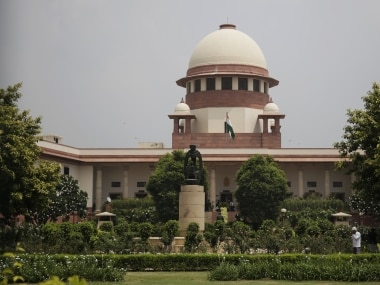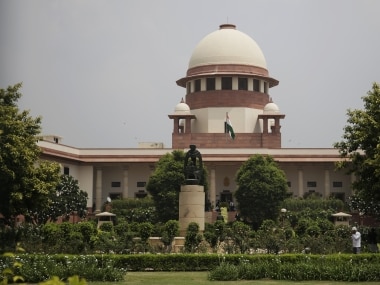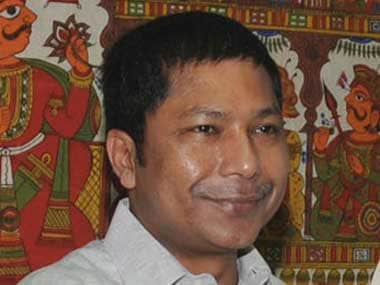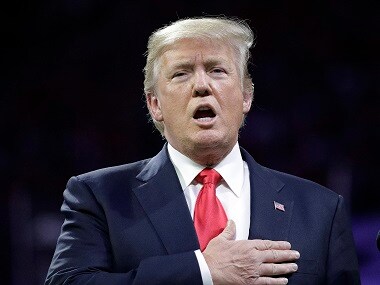The Supreme Court has modified its earlier order on the playing of National Anthem in cinema halls and has made it non-mandatory. It took cognisance of the Centre's submission that had asked the court to modify the order.
National Anthem: Supreme Court modifies earlier order, directs playing of National Anthem in Cinema halls is not mandatory. Notes Centre's submission about Committee which has been constituted to decide on all aspects relating to National Anthem. Petition disposed of.
— Bar & Bench (@barandbench) January 9, 2018
Lok Sabha MP Asaduddin Owaisi told CNN-News18 that he has always been opposed to the direction to play the National Anthem in cinema halls. "One must respect the National Anthem but there is a place and time to play it. It must only be done on solemn occasions," said Owaisi.
The inter-ministerial committee
The Centre on Monday had told the court that an inter-ministerial committee has been set up as framing of guidelines describing circumstances and occasions on which the national anthem is to be played or sung, and observance of proper decorum on such occasions requires extensive consultations.
The government had said that the top court may "consider the restoration of status quo ante until then ie restoration of the position as it stood before the order passed by this court on 30 November, 2016" as it mandates the playing of the National Anthem in all cinemas before the feature film starts. It also said it has decided to constitute an inter-ministerial committee headed by Additional Secretary (Border Management), Ministry of Home Affairs, with representatives from various other ministries, including the Ministries of Defence, External Affairs, Culture, Woman and Child Development and Parliamentary Affairs.

File image of the Supreme Court of India. AP
It would also have representatives of Ministries of Information and Broadcasting and Minority Affairs, Department of Legal Affairs, Department of School Education and Literacy and the Department of Empowerment of Persons with Disability, the affidavit filed by the Centre had said.
It had said the committee has to consider a wide range of issues relating to the national anthem, and have extensive discussions with various ministries. The committee will give its recommendations in six months from the date of its constitution. The Centre in its four-page affidavit had said upon consideration of the recommendation made by the panel, the government may bring out the requisite notification or circular or rules in this regard, if required.
During the hearing on a PIL on 23 October, Attorney-General KK Venugopal, appearing for the Centre, had said India was a diverse country and the national anthem needed to be played in cinema halls to bring in uniformity. He had said it should be left open to the government to take a call on its own discretion on whether the anthem should be played in theatres and whether people should stand up for it.
The apex court had then observed that people do not need to stand up in the cinema halls to prove their patriotism and asked the Centre to consider amending the rules for regulating playing of the national anthem in the theatres. It had observed that it cannot be assumed that if a person does not stand up for the national anthem, he is "less patriotic" and the people "cannot be forced to carry patriotism on their sleeves."
The court's strong remarks had came during the hearing on a PIL filed in 2017 by Shyam Narayan Chouksey seeking a direction that the national anthem be played in all cinema halls before the start of screening of a film.
November 2016 order
The apex court had in its November, 2016, order said that "love and respect for the motherland is reflected when one shows respect to the national anthem as well as to the national flag". It had also barred printing of the anthem or a part of it on any object and displaying it in such a manner at places which may be "disgraceful to its status and tantamount to disrespect".
Passing a slew of directions, the court had said that fundamental duties in the Constitution "do not allow any different notion or the perception of individual rights that have individual thought, have no space. The idea is constitutionally impermissible".
"The directions are issued, for love and respect for the motherland is reflected when one shows respect to the national anthem as well as to the national flag. That apart, it would instill the feeling within one of a sense committed patriotism and nationalism," it had then said.
It had also said proper norms and protocol should be fixed regarding its playing and singing at official functions and programmes where those holding constitutional office are present.
Published Date: Jan 09, 2018 13:32 PM | Updated Date: Jan 09, 2018 13:40 PM

















